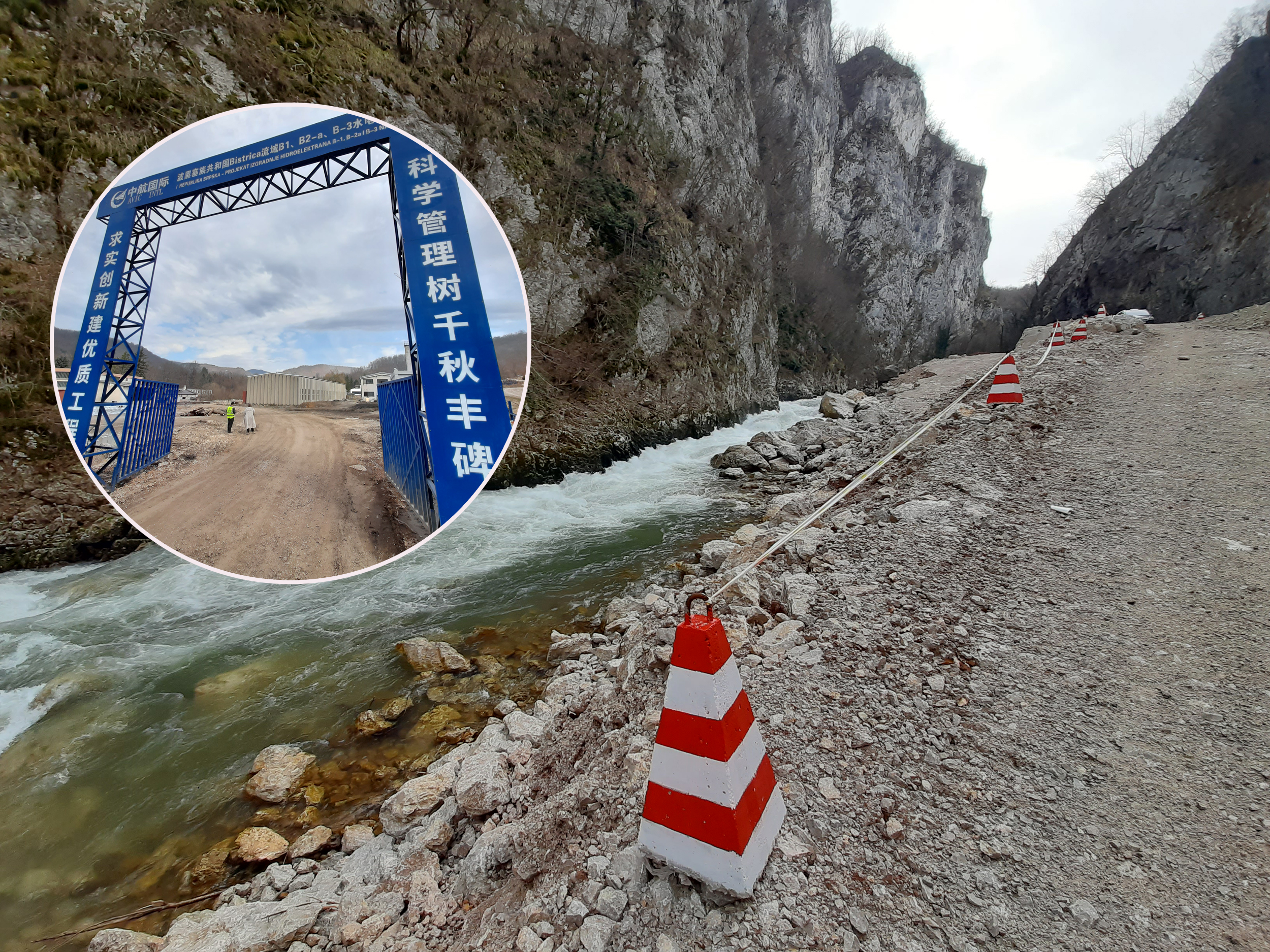In the former Miljevina Mine complex near Foča, works are in full swing to prepare a camp for accommodating Chinese workers who will be working on three planned small hydropower plants (SHPPs) on the Bistrica River.
The Chinese national Aero-Technological Corporation for International Engineering (AVIC-ENG), as the contractor, will receive 102 million euros for the large-scale construction of the three SHPPs on the Bistrica River, which is to be provided by the investor, the company Hidroelektrane Bistrica, majority-owned by Hidroelektrane na Drini, that is, Elektroprivreda Republike Srpske (RS).
CHINESE WORKERS ON SITE
Work is ongoing at the camp even on weekends. A few workers from China are preparing tools, equipment, and a van in the yard, which will go to one of the locations where the construction of one of the three small hydropower plants (SHPPs) is planned. A worker in a neon green vest says they are accommodated in the former mine complex. He does not speak English, so he calls the manager who arrives in a few minutes.
A younger man named Shung expressed how strange the interest in the construction of the camp for Chinese workers is. He asks where the text will be published but agrees to answer a few questions briefly. He explains that they have a consulting team in Bosnia and Herzegovina that verifies documentation for the construction of hydropower plants, and when asked if they have all the necessary permits, he confirms.
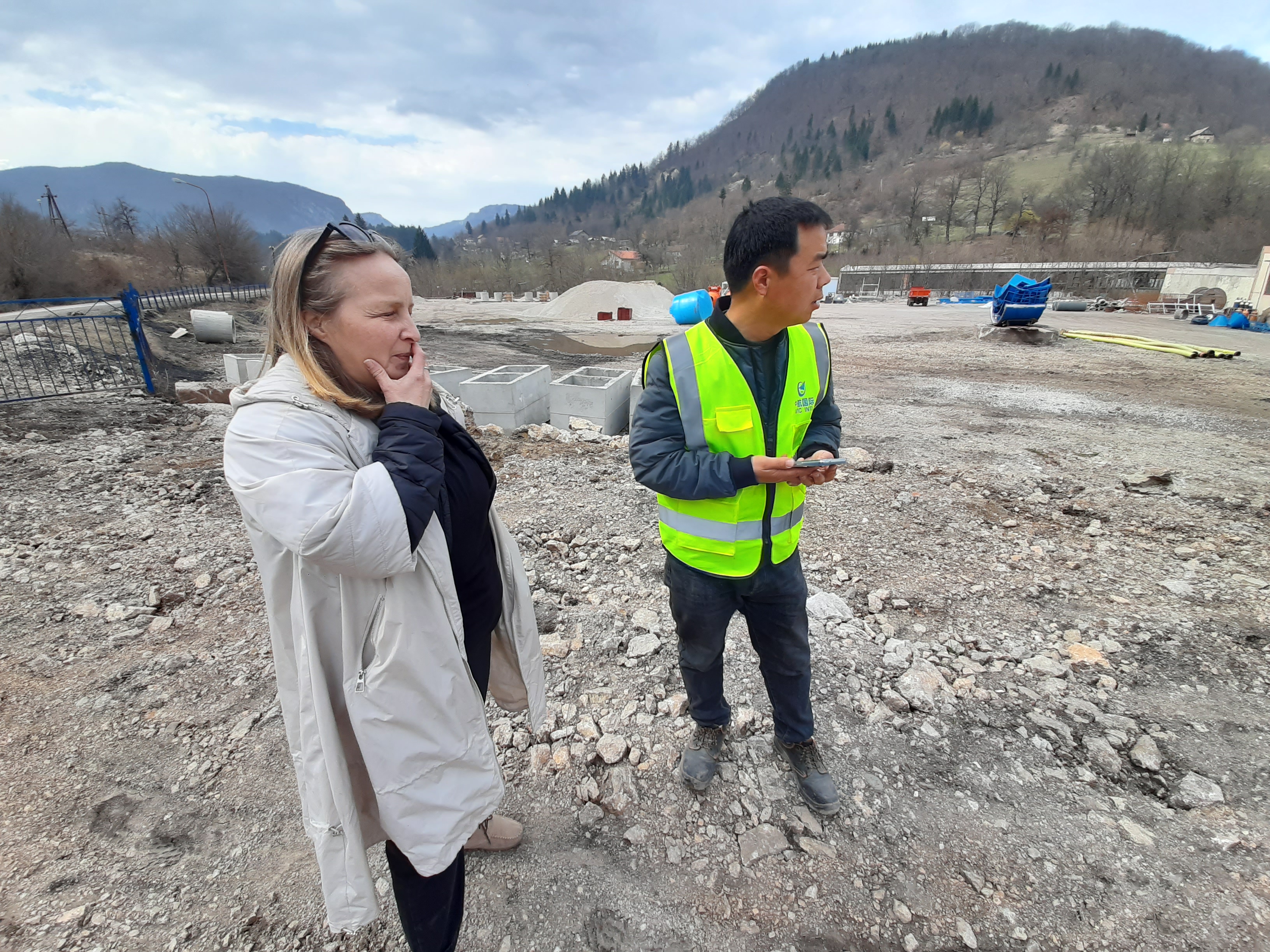
Photo: Our colleague with the Chinese supervisor
“As you can see, at the moment we are working on preparing the camp where the workers will be accommodated, and I hope that we will start construction work as soon as possible. Currently, there are 30 workers from China here, and we also have a lot of local staff. I think there are about 20 of them, and when the construction work starts, I hope we will have more,” explains Shung.
When asked if there is a possibility that the construction of the small hydropower plants (SHPPs) will damage the Bistrica River, as previously warned by the local population, he responds that the construction of the hydropower plant certainly affects the river, but it is difficult to say that it will be destroyed.
The project consists of three small hydropower plants with a total installed capacity of 39 megawatts and an annual production of 152 gigawatt-hours of electricity. The construction contract with the Chinese corporation AVIC was signed in Beijing in 2019 by the former Prime Minister of Republika Srpska, Radovan Višković. The construction of the hydropower plants on the Bistrica River was officially initiated at the end of 2021, but the plan has not progressed smoothly.
Regarding the construction of small hydropower plants (SHPPs) on the Bistrica River near Foča, local residents do not want to speak publicly today, although they previously expressed dissatisfaction and fear that the Bistrica River will be “put into pipes” like many other rivers in Bosnia and Herzegovina and that the construction of mini hydropower plants will completely destroy the nature. Some of them still say this, but not on the record.
They talk about recent fish stocking in those areas, allegedly to mitigate the damages caused by the construction of SHPPs, although the authorities claim that these are just preparatory works such as roads leading to the construction site. In informal conversations, they also express their belief that the local population and the municipality will not benefit from the mini hydropower plants, only the investor.
GREAT HARM, NO BENEFIT
Vladimir Ninković, a member of the Council of the Local Community of Miljevina, through which the Bistrica River flows, responds to the question of why the locals do not want to talk about the construction of small hydropower plants (SHPPs) by saying that it seems that the local population has no issues with the construction of SHPPs on the Bistrica River, as most of them remain silent. He says that only the Elektroprivreda Republika Srpska (RS) will benefit from the construction.
“As a resident of Miljevina, I only know that whenever the wind blows, the power goes out; when the sun is strong, the power goes out; when it rains, the power goes out; and during all weather conditions and disasters, there is no electricity. Personally, I do not expect there to be any jobs at the power plants, maybe some people will be employed during the construction phase, but I doubt it after completion,” says Ninković. He believes that the SHPPs on the Bistrica River will cause harm to the environment and bring no benefits.
“In the project, there are no benefits for our local community. I believe that our local community will not gain anything from it, even the concession fee goes to the budget of RS”, says Ninković.
The company Hidroelektrana Bistrica has existed for about ten years and was previously in private ownership. The ownership of the company was taken over by Elektroprivreda Republika Srpska, after which a contract was signed with a Chinese company for the construction of SHPPs. It is estimated that the annual revenue of the power plants could be around 25 million euros.
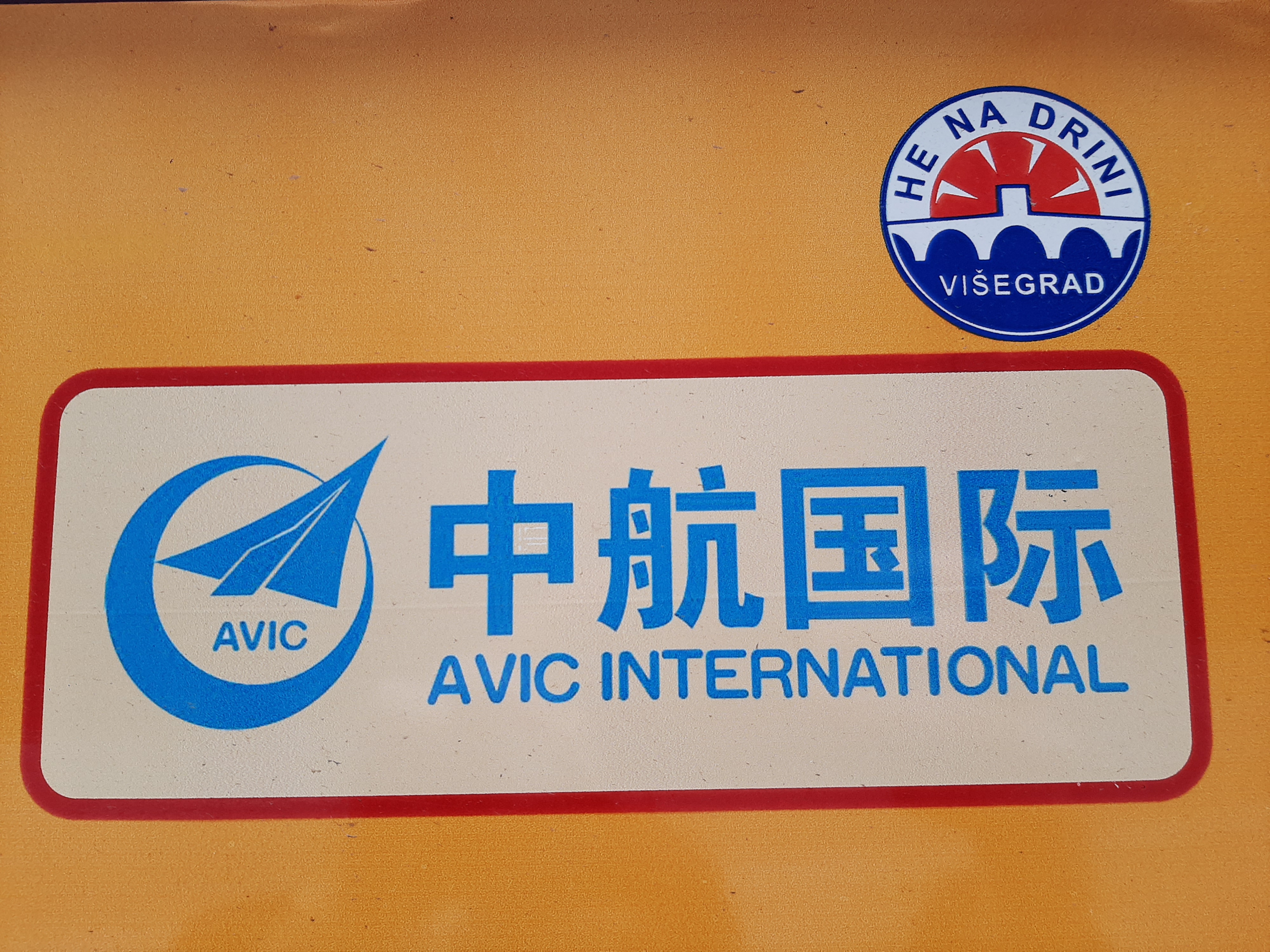
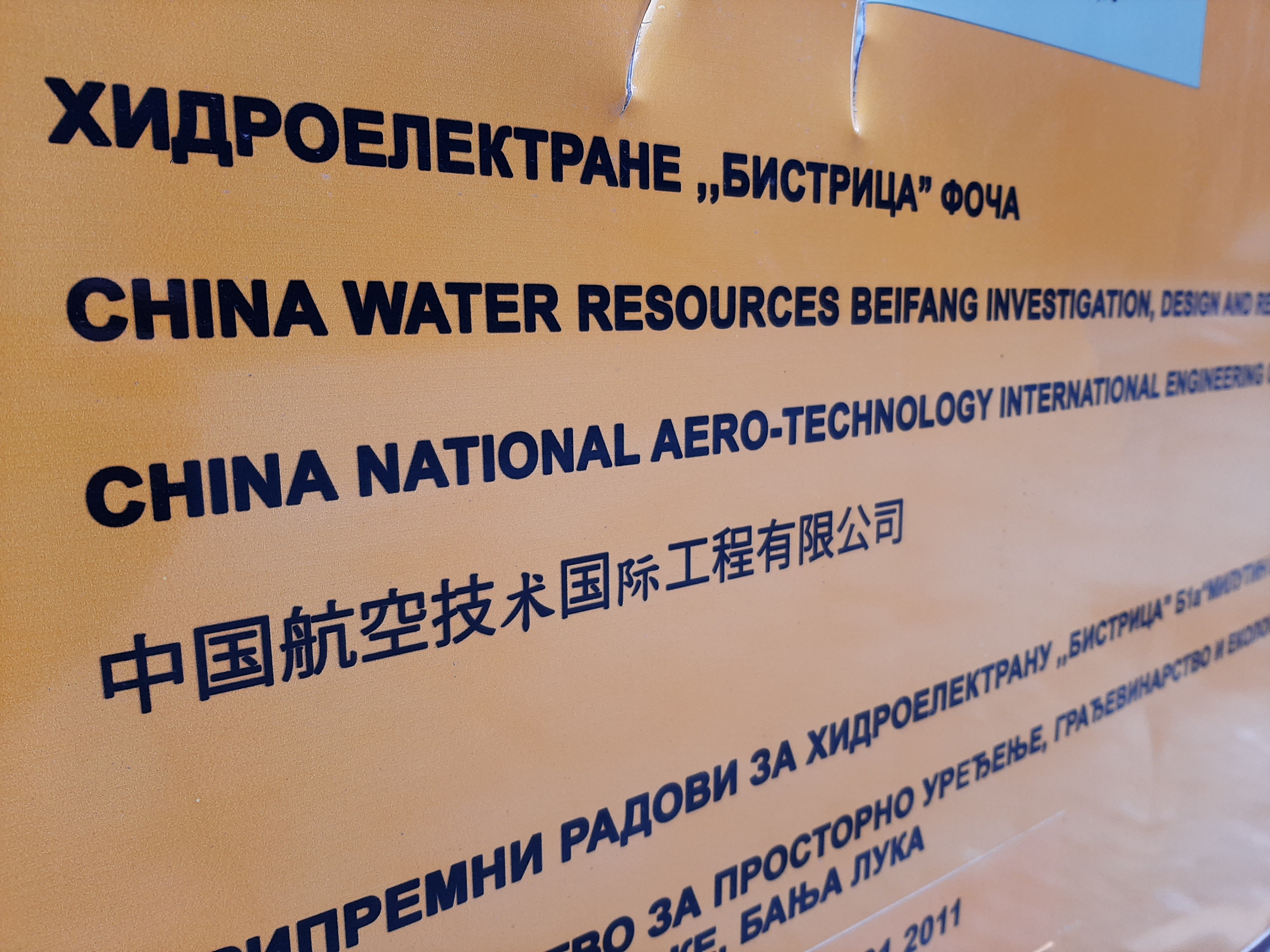 The concession for the construction of hydropower plants on the Bistrica River was awarded to Elektrodistribucija from Pale in 2006. It was awarded by the Ministry of Economy, Energy, and Development of the Republic of Srpska, and Elektrodistribucija established the concession company Hidroelektrane Bistrica, which took over the project three years later. At that time, construction and environmental permits were also obtained, but they expired after five years.
The concession for the construction of hydropower plants on the Bistrica River was awarded to Elektrodistribucija from Pale in 2006. It was awarded by the Ministry of Economy, Energy, and Development of the Republic of Srpska, and Elektrodistribucija established the concession company Hidroelektrane Bistrica, which took over the project three years later. At that time, construction and environmental permits were also obtained, but they expired after five years.
The project for the construction of hydropower plants on the Bistrica River remained stagnant for a long time, and the company changed ownership to private ownership until it was taken over by Hidroelektrane na Drini in 2019, whose owner is Elektroprivreda RS. The concession for the exploitation of the Bistrica River for electricity production lasts until 2043. The company Hidrelektrana Bistrica d.o.o. Foca was formed with the aim of realizing this hydropower project on the Bistrica River.
However, finding the money to pay the Chinese company for the construction of the hydropower plants was not easy. Therefore, in late 2021, the Government of Republika Srpska announced that Elektroprivreda RS would issue bonds on the Vienna Stock Exchange to secure funds for investments. The Prime Minister of Republika Srpska, Radovan Višković, confirmed that Elektroprivreda Republike Srpske (ERS) would borrow by issuing bonds on the Vienna Stock Exchange and that ERS, as a company majority-owned by the Government of Republika Srpska, must obtain approval for such a move. He reminded that ERS finances significant projects from its own funds, citing the example of HPP Bistrica. Earlier, Zora Vidović, the Minister of Finance of Republika Srpska, announced that ERS would issue bonds on the Vienna Stock Exchange worth 140 million euros and that the funds would be used for the construction of the Dabar and Bistrica hydropower plants.
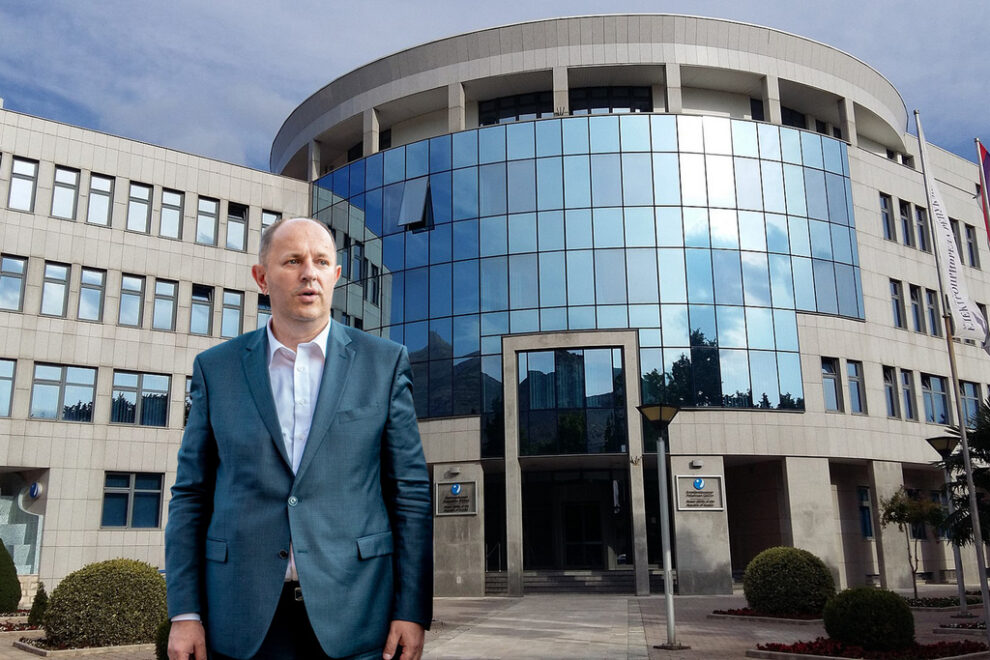
Photo: Headquarters of ERS and its General Director Luka Petrović
In early 2022, ERS requested a bank loan of 30 million KM to settle its obligation for purchased electricity from Hidroelektrane na Drini, in which it holds a 65% ownership, and then use those funds for capitalization of Hidroelektrane na Drini in Foča, in which they hold a 100% ownership. The purpose of the loan, in fact, is to finance the construction of Hidroelektrane Bistrica, as stated in the tender documentation.
The capitalization of Hidroelektrane Bistrica was completed a year later (in February of this year). The director of that company, Dejan Pavlović, confirmed that they had transferred 30 million euros to their Chinese partners for the project of building three small hydropower plants, while Nedeljko Perišić, the director of Hidroelektrane na Drini, which owns Hidroelektrane Bistrica, stated that the company is currently not making a profit “because it is under construction,” and that they use capitalization as the only way to inject financial resources into their company.
ONE CONSTRUCTION PERMIT SUSPENDED
Sam Pavlović, in an interview with Inforadar, claims that all the permits required for construction are valid, except for the construction permit for hydropower plant B2, which has been temporarily suspended by the Banja Luka court, following a lawsuit filed by the Center for Environment from Banja Luka.
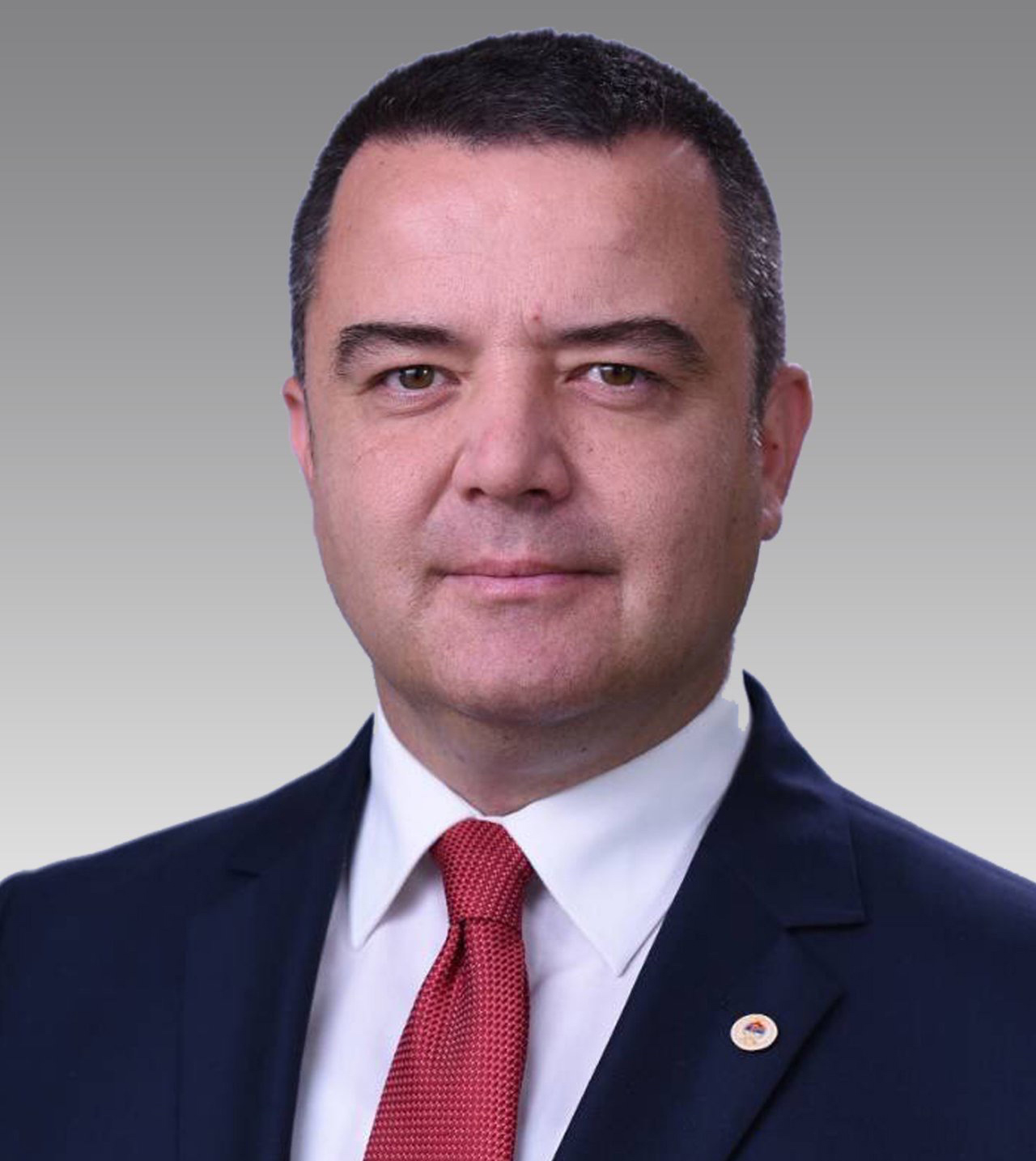
Dejan Pavlović
The District Court in Banja Luka invalidated the decision of the Ministry of Spatial Planning, Construction, and Ecology of Republika Srpska, issued in late January, granting a construction permit for the B-2a hydropower plant project with a capacity of 7.2 megawatts. The other two facilities are also in dispute and facing lawsuits filed by the Center for Environment and the Aarhus Center of Bosnia and Herzegovina.
 Photo: Facsimile of the accepted lawsuit
Photo: Facsimile of the accepted lawsuit
The District Court invalidated the decision of the Ministry of Spatial Planning, Construction, and Ecology due to significant violations of procedural rules during the issuance of construction permits to the company Hidroelektrane Bistrica, based in Foča, as stated by the Center for Environment.
Hidroelektrane Bistrica, backed by ERS, did not have a valid environmental permit when it commenced construction works in December 2021. The environmental permit is a crucial precondition for the construction of facilities that have invasive effects on environmental elements, particularly water resources, explained the Center.
On the other hand, Pavlović claims that lawsuits were filed by the Center for Environment against all three hydropower plants and that “only one” was accepted, while the other lawsuits were rejected.
 Photo: Facsimile of rejected lawsuits
Photo: Facsimile of rejected lawsuits
When asked if any work is currently being done at the site where the lawsuit was accepted, Pavlović responds negatively and says that they were recently visited by an inspector who conducted an inspection and concluded that there were no new works.
“The three hydropower plants on the Bistrica River are supposed to be completed within the next four years. The Chinese are the contractors, and a contract worth 102 million has been signed with them, which is the amount they can be paid. Currently, there are about 50 workers in Miljevina, 30 of them from China. During the peak of the construction works, around 300 Chinese workers are expected to work on the facilities”, says Pavlović.
The Chinese company engaged in this project is state-owned, established in 2008, with nearly half a million employees and mainly engaged in aviation industry projects. Due to its dealings with the Chinese military, it is on the list of those in which US citizens and companies are prohibited from investing.
In the executive order of the US president from June 2021, it is stated, among other things, that US citizens are prohibited from doing business with dozens of Chinese manufacturers that have collaborated with the military. Among them is the company AVIC.
This executive order, as stated by the US president, establishes a sustainable and strengthened framework “for imposing investment restrictions on Chinese companies in the defence and surveillance technology sector.”
WHAT IS CONTROVERSIAL ABOUT THE CONSTRUCTION OF SHPPs
Redzib Skomorac, the legal advisor at the Center for the Environment Banja Luka, explains that for the planned construction of three SHPPs, the baseline environmental status has not been adequately determined, which means that neither the Environmental Impact Studies, approved by the ministry, are adequate and in compliance with the law.
“The studies propose an obscure technical solution called ‘fish lift’ for fish migration, but there is nothing particularly specified about its functionality and justification in specific projects, both in the studies and in the documentation submitted for the issuance of environmental permits. In addition, the investor started all three projects without valid environmental permits, which had expired at the time of commencement of works, and the process of approving the studies was still ongoing”, he explains.
According to him, the inspection authorities justified the commencement of works by the existence of building permits that were issued for all three projects more than 10 years ago, even though these permits were not accompanied by valid environmental permits – which are a prerequisite for the lawful implementation of projects on water resources.
“After successfully annulling the construction permit for one of the projects (HPP B-2a) through legal action, the inspection authority justified the ongoing works for HPP B-2a by citing the existence of water compliance”, added Skomorac.

He warns that the situation on the ground has been partly legalized through inadequate actions of the inspection authorities, justifying the preparatory construction works with existing water acts and questionable construction permits. However, as long as the legal proceedings against the Environmental Impact Study are not concluded, it is clear that the basic principle of the rule of law, which is legal certainty, is being violated.
“In any case, it is currently evident that the implementation of at least one project, specifically HPP B-2a, is not possible in accordance with the law, as after the judicial annulment of the construction permit, the ministry, as far as we know, has not issued a new approval”, says Skomorac.
A total of six lawsuits have been filed in administrative disputes regarding the construction of three SHPPs on the Bistrica River. Three lawsuits are against the Environmental Impact Study and three are against the construction permits for these projects. The proceedings against the Environmental Impact Study are still ongoing, and the lawsuits are based on significant violations of the procedure for approving the Study. The proceedings against the construction permits have been concluded in a way that two lawsuits were rejected, and one was granted.
“Regarding the lawsuit that was granted, the ministry still needs to execute the court’s judgment and issue a new decision. Two lawsuits were rejected because there was not enough legal causality between the proceedings for issuing environmental permits, which was the argument of the lawsuits, and the annulment of the issued and subsequently extended construction permits. However, it is important to note that the third decision of the court, in which our lawsuit against the construction permit was granted, is very encouraging and represents a precedent in previous judicial practice and the pursuit of environmental justice. Namely, unlike the two dismissive judgments, the presiding judge in the third judgment decided that there is sufficient basis to decide on the lawsuit ex officio regarding the issuance of the construction permit for HPP B-2a back in 2010, and to annul this permit due to significant violations of the procedure”, explained Skomorac.
There are currently no construction works at the site of the third SHPP due to the court’s decision. There is a sign indicating that construction works have started at that location. However, access works for the other two hydropower plants upstream are still ongoing. The local population does not believe they will benefit from the construction of the SHPPs, as experiences from other hydropower plants built across Bosnia and Herzegovina show that only one or two people get jobs in them.
The only potential benefit may come from concession fees, but even that is negligible compared to the actual profits of the investor who struggles to pay Chinese contractors for the works.


